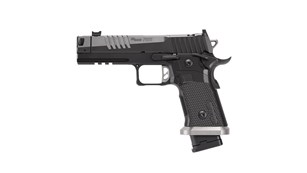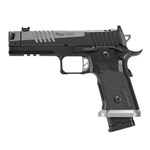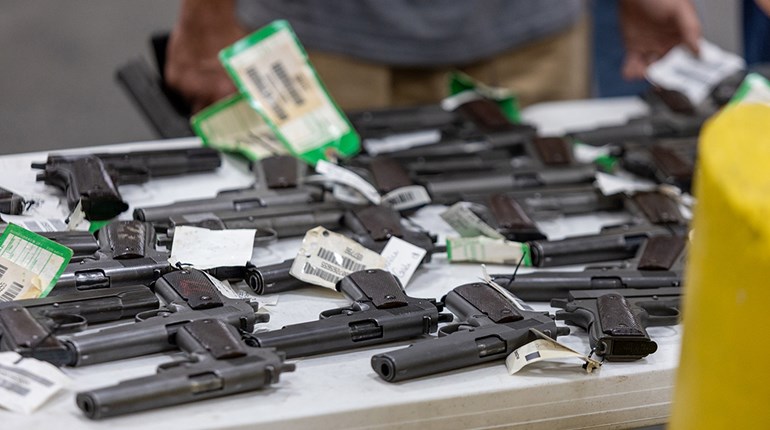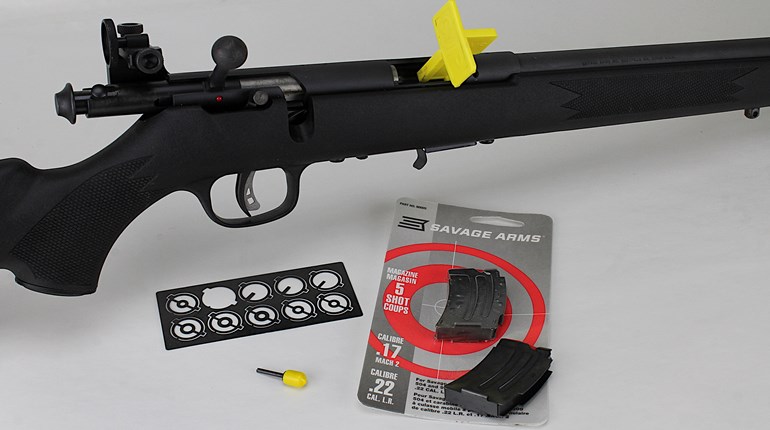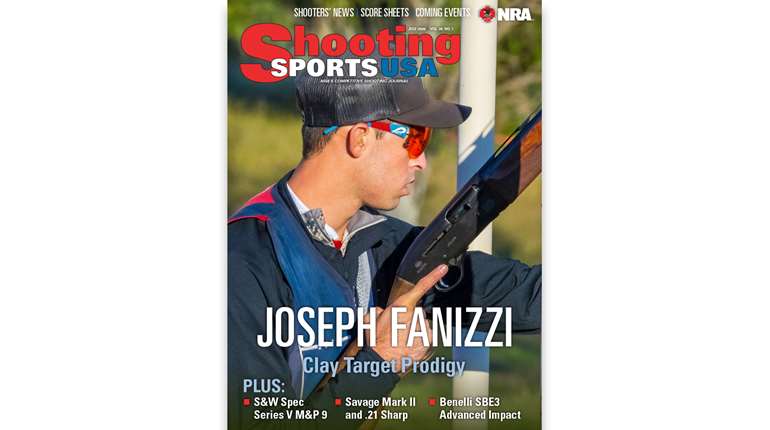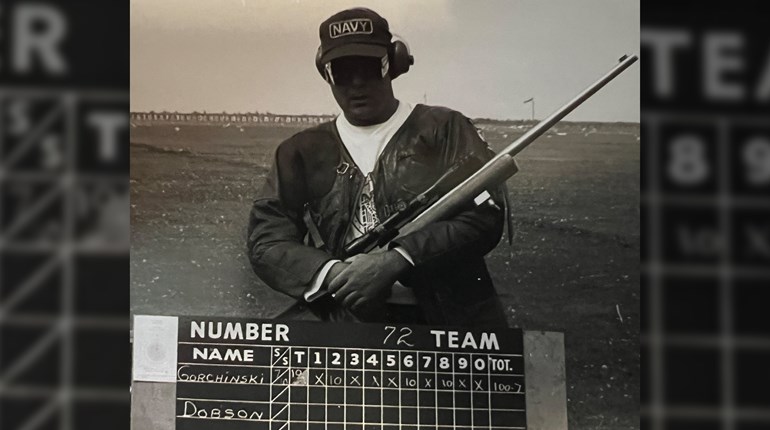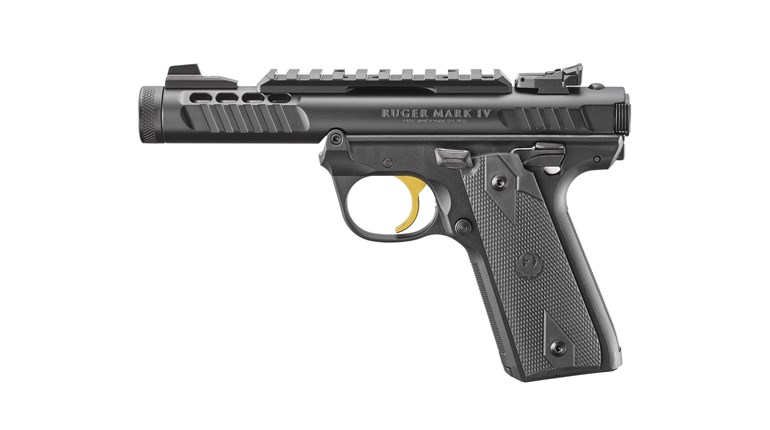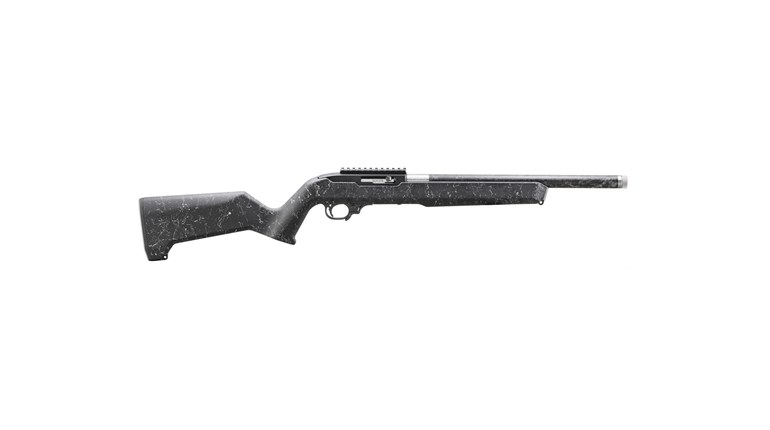
The U.S. Army Marksmanship Unit (AMU) has a storied history of producing the world’s greatest shooting-champion athletes. What is sometimes overlooked is the AMU’s tremendous ability to train coaches and mentor youth shooting programs. The expertise and experience of the AMU’s members was showcased at Mariner High School in Cape Coral, Fla., for the first-ever Florida air rifle coaching clinic, where 26 coaches and more than 20 high performing JROTC cadet-athletes participated.
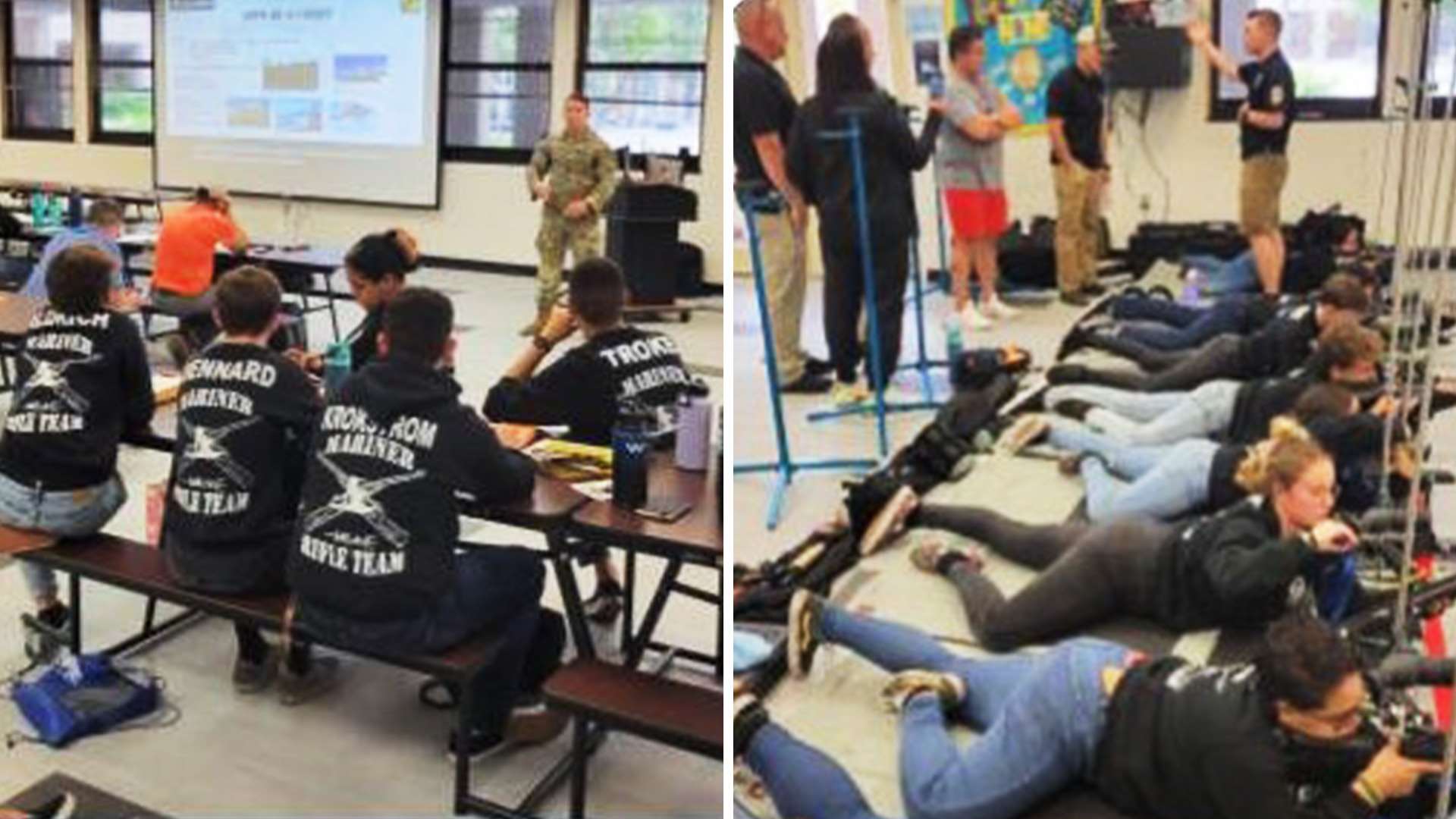
When Mariner High School Coach Marybeth Williams approached the AMU’s Sgt. First Class George Norton at the AMU-hosted Youth Air Rifle 3-Position Championship at Fort Benning, Ga., her initial goal was to connect some of her top athletes as perspective Army Marksmanship Unit soldiers. However, after picking Norton’s brain for coaching advice, she had an epiphany.
“My husband and I have been working hard in our first four years of coaching to build a network of mentors. It occurred to me what an enormous opportunity it would be to have the talent of the AMU help us with a ‘train-the-trainer’ type event,” Coach Williams explained.
She and her husband Maj. Bryan Williams, the Mariner High School Army JROTC Senior Army instructor and marksmanship coach, quickly established a relationship with Norton. The trio collaborated on a coaching clinic concept.
Their idea grew legs and was fully supported by the U.S. Army Cadet Command’s 6th Brigade JROTC Director, Robert Hyver, and the AMU Commander, Lt. Col. Casey Mills.
Hyver said, “Marksmanship is a JROTC co-curricular activity that directly connects our cadets with college and scholarships. This was a no-brainer to get behind and support our JROTC instructor coaches across the state of Florida.”
Norton and the Williams built a clinic agenda that not only focused on shooting drills and techniques, but placed a heavy emphasis on designing a complete program focused on advising coaches and athletes about opportunities after high school.
Norton, a former international champion and American record holder, has always been passionate about instructing youth—particularly JROTC Cadets.
A product of the St. Johns Military School JROTC program, Norton said, “The most powerful testimony of my success in shooting and in life is the influence my JROTC instructor, Master Sgt. Tony Blair, had on me. JROTC gave me purpose and a direction for my life. Master Sgt. Blair taught me how to be disciplined and the type of commitment that was necessary to achieve my goals and excellence in everything I tried. I owe him everything for the man I’ve become. I’ve always wanted to put some type of clinic or training seminar together that would give back to the JROTC community.”
After only a few short months of planning, the Williams team and Norton put together an aggressive training agenda, and quickly put the word out about the clinic across the state of Florida.
Maj. Williams said, “The AMU definitely led the clinic, however one of the greatest outcomes of putting more than 25 coaches in a room together was building a coaching network and sharing best practices with one another. We talked about fundraising ideas, equipment maintenance, incentive and awards programs and scholarship opportunities. There was an enormous amount of information shared. We plan to repeat this event.”
With a heavy emphasis on building programs that provide opportunities for athletes after high school, there were other guest speakers on hand. The Florida State American Legion and local Post 90 gave presentations about the Legion’s Marksmanship Junior Shooting Sports Program and other scholarship opportunities.
The five Cape Coral High Schools, in collaboration with their local American Legion Post, designed a round robin tournament in 2014 called the “King of the Cape.” During the event, the five teams compete shoulder to shoulder, rotating the host school each week. At the end of each weekly match, the host team provides a meal and certificates for the top performers. At the end of the five-week competition, the winning team is presented the prestigious King of the Cape cup and has their named engraved on the trophy.
“Cadets all over our school district know about this tournament. It is definitely one of our top goals each year to win back the cup.” Mariners Team Captain Eryka Vazquez said. “All of the cadets earn a special American Legion ribbon for their uniform, but the best part is making friends with cadets from all the other teams.”
Many coaches attending the clinic reported they were motivated to improve collaboration with their local posts. Additionally, several Florida ROTC programs sent their recruiting officers to connect with the cadet athletes at the clinic to educate and promote ROTC scholarship opportunities.
The Army National Guard recruiters also gave a presentation about scholarship opportunities and provided advice about building a well-rounded resume in high school.
“I was really impressed with how much information we were provided about college scholarships, whether it was with shooting or not,” Mariner senior Leelend Hineman said. “I definitely feel more confident and well-informed about my graduation plans.”
Norton was joined by Sgt. Jared Desrosiers and Staff Sgt. Brandon Muske, both highly accomplished soldier-athletes. The trio broke the Florida coaches and JROTC cadet athletes into small groups for hands-on training and group discussion.
Sgt. First Class Steve Gainey of East Lee High School said, “This is my seventh year of coaching, and I learned more over the last 48 hours than my first six years combined. Having the AMU team share their extraordinary experience and expertise is definitely going to be a game changer for my program. I can’t wait until the first day of practice with my team.”
The U.S. Army Marksmanship Unit’s presence expanded well beyond teaching and mentoring coaches and athletes. As a result of the AMU’s influence, eight of the 20 cadet athletes participating in the clinic expressed serious interest in pursuing military careers and several, specifically, on setting the goal to join the elite U.S. Army Marksmanship Unit—this coming at a time when the Army’s recruiting mission has fallen well short for the past two years.
After the clinic, several cadets stayed to talk to Norton.
“I’m not only motivated to be a better shooter, I’m totally interested in becoming a member of the U.S. Army Marksmanship Unit,” Cadet Nathan Krokstrom said.
“All of the sergeants really helped me better understand the level of commitment and dedication I need to achieve excellence in my life,” Cadet Tyler Dennard said. “It was so cool how helpful and down-to-earth all of the sergeants were, taking the time to hang around after the clinic and talk to all of us cadets about our goals. I feel so much more confident now and I have set a goal of enlisting in the Army.”
While the train-the-trainer idea is nothing new, combining a coaching clinic concept with influencing young people to defend our nation is a novel concept.
“I am confident we’ve discovered a partnership and a model idea for other shooting communities to replicate,” Maj. Williams said. “The knowledge shared between the AMU and other coaches was absolutely priceless. I’m excited to see the relationship grow between the AMU and JROTC.”
Learn more about the U.S. Army Marksmanship Unit and the Civilian Marksmanship Program.

